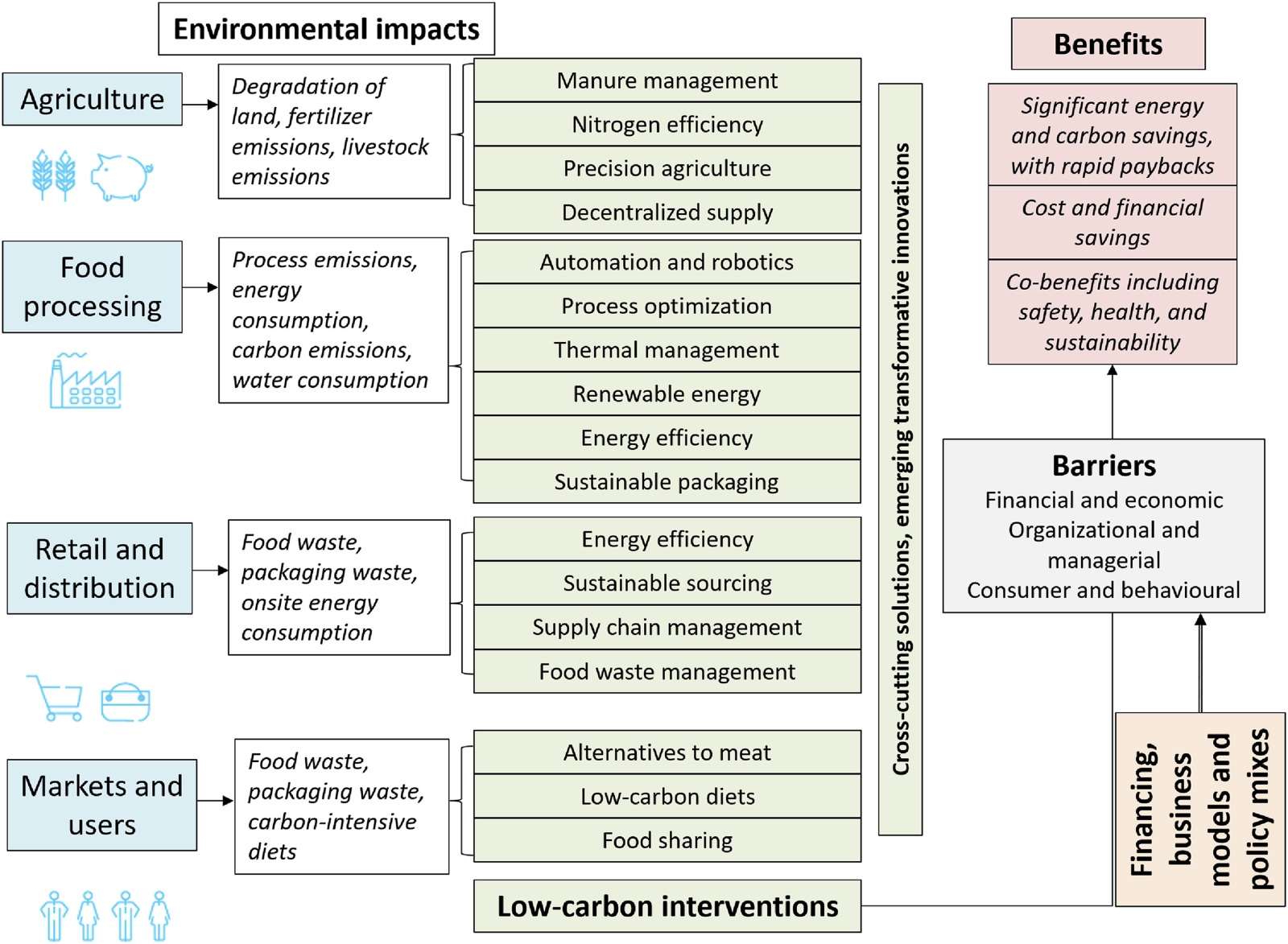June 01, 2021 | Renewable and Sustainable Energy Reviews |
Introduction: The UK research team led by Sussex Business School collaborates with individual researchers from the US, United Arab Emirates, Republic of Korea to assess food and beverage sector's carbon footprint and explores decarbonization strategies through a thorough interdisciplinary review, aiming for a more sustainable future.
Key findings: The energy and carbon footprints of the food and beverage industry are substantial, spanning from farm to fork. Fossil-fuel-based farming practices, livestock production, and food processing contribute significantly to greenhouse gas emissions. Transporting food over long distances further exacerbates environmental impacts. Energy-intensive processes like refrigeration and cooking also add to the industry's footprint.
The decarbonization of the sector involves various technological innovations and practices across different stages of the supply chain. In agriculture, options include improved land management, precision agriculture, and decentralized food production. Food and beverage manufacturing can benefit from automation, process optimization, renewable energy adoption, and sustainable packaging. Similarly, energy-efficient practices and waste reduction strategies are essential in food retail and distribution. Consumer behavior changes, such as adopting plant-based diets and reducing food waste, also contribute to decarbonization. Emerging breakthroughs like precision biology offer potential transformative impacts.
Decarbonizing the food and beverages industry holds significant benefits across multiple fronts, including energy and carbon savings, cost reductions, environmental protection, and improvements in worker health and satisfaction. However, there exist notable barriers to decarbonization, including financial constraints, organizational challenges, and consumer behavior patterns favoring carbon-intensive products. Various policy instruments, ranging from emissions trading systems to targeted incentives for low-carbon products, can play a crucial role in driving industry-wide decarbonization efforts.

Fig. | Interventions, benefits, barriers and policies for decarbonizing the food and beverage sociotechnical system.





